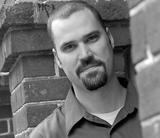
Being Irish Makes You Hard-Hitting? Well, Yes.
Jennifer Howard, over at The Chronicle of Higher Education, has taken issue with my earlier blog post about Paul Muldoon. I wrote:
Maybe we can also hope that an Irish poet such as Muldoon will have an eye for harder-hitting, more topical poetry than we’re used to seeing in mainstream American magazines.
Howard responded by asking:
So being Irish makes you hard-hitting and topical? I thought we weren’t supposed to generalize based on nationality any more. It’s a good question, though: Is Muldoon’s appointment (or Simic’s, or Maxwell’s) really an example of a new internationalism in American literature or something less dramatic? Poets, speak.
I encourage our readers to respond there, but also leave your comment here. For your ease, here’s the response I posted:
There’s generalizing based on nationality, and then there’s drawing conclusions based on facts. The title sequence of sonnets in Muldoon’s latest book, Horse Latitudes, deals with the outbreak of the Iraq war. Can you name a prominent American poet who has dedicated similar space to the protest of the war? Almost any Irish poet is more politically engaged (at least on the page) than almost any American poet. Yes, Muldoon, but also Heaney, Ní Dhomhnaill, Longley, McGuckian, Mahon, and on and on. In this country—rife with poets with MFAs and prize-winning books and tenure-track jobs—where are the poems about the Iraq war? We have Brian Turner’s Here, Bullet. We have Operation Homecoming. Who else? Where is our Whitman writing poems at the bedside of the wounded? Maybe he or she is out there, and Muldoon will bring him or her to the pages of The New Yorker. Let’s hope so.
Jump into the fray, folks. Let’s talk about the place of the political in poetry.

